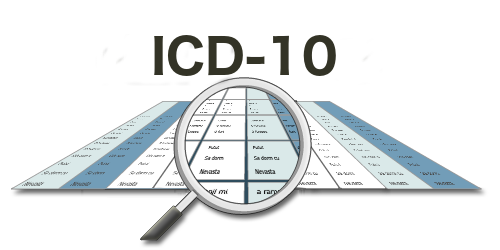There has long been concern about the association of diabetes and heart disease—and there has long been a concern about the types of medications used to control blood sugar levels—do they increase the risk of heart disease? Do they decrease the risk? Or do they have no effect on the risk of heart disease?
The LEADER (Liraglutide Effect and Action in Diabetes: Evaluation of Cardiovascular Outcome Results) trials were designed to assess the risks of major heart disease in diabetes patients already at high risk while taking liraglutide (Victoza). The study was mandated by the FDA and followed 9,340 high risk T2D patients in 32 countries around the world at over 400 sites. This was the second study focusing on heart health effects of diabetes medications—the first was on a drug similar to liraglutide—lixisenatide.
The results of that first trial was essentially neutral—researchers were not able to find either increased or decreased heart risk for patients using lixisenatide.[1]
Anti-diabetes Drugs and Heart Disease
It has been estimated that by the year 2035, approximately 10% of the world’s population will have been diagnosed with T2D. [2] Heart disease is closely directly and indirectly associated with diabetes. This includes both macrovascular (the larger blood vessels: associated more with heart attack and stroke) and microvascular (the smaller blood vessels: associated more with diabetic neuropathy, retinal and kidney damage) effects. Approximately 75% of ALL deaths in diabetic patients is due to cardiovascular damage.2 Diabetic patients have a two to four times higher risk of coronary heart disease, a 10 times higher risk of peripheral artery and peripheral vein disease and a three to four times higher risk of death from heart or vascular disease as compared to non-diabetic individuals.
For the most part, the emphasis in the management of diabetes has been to lower blood sugar levels through diet, exercise—and medications. These medications have not been primarily concerned with heart or vascular effects. However, in 2007, the ACCORD study was discontinued because it was found that in the part of the study with intense glucose-lowering as its main goal, that intensive effort to lower blood sugar was also associated with an increased risk of death from heart disease. [3] The FDA then mandated that studies around the cardiovascular safely of anti-diabetes medications had to be done.
The Connection Between Diabetes and Heart and Vascular Disease
In order to understand how the body works, a “reductionistic” approach has long been taken in science and medicine. A reductionistic approach means that scientists and physicians have “reduced” the body to various systems, organs, tissues and cells. We are now in the age of the molecular.
While there are still questions about how cells, tissues, organs and systems function together, for the last few decades, scientists and medical researchers have been learning more and more of how the body works on ever-smaller levels—genetically and molecularly.
The reductionistic approach has been absolutely essential in trying to understand health and disease. However, this reductionistic approach often doesn’t try to “put Humpty Dumpty together again” – in diabetes, the main known dysfunction is high levels of blood sugar, so let’s find drugs to lower the blood sugar.
That is fine, as far as it goes, but it is becoming clearer and clearer that treating symptoms is not enough—this is why diet and exercise is so emphasized. Drugs, however, rarely have just one effect and very often it is unclear why some of the adverse effects even occur.
Because diabetes affects the blood vessels and the nerves it is clearly necessary to lower blood sugar levels, but it is also just as clearly not sufficient because heart and blood vessel complication still occur at very high rates in even “well-controlled” (controlled for blood sugar levels) a diabetic patient is.
Some of the drugs used to treat diabetes have benefits for the heart and blood vessels, some have risks and adverse effects for the heart and blood vessels and some are (or appear to be) relatively neutral. (See Table 1)
Table 1: Adapted from Reference #2
| Drug or Drug Class | Benefits for Heart and Blood Vessels | Adverse (Side) Effects |
| Metformin | Indirect benefits by improving fat metabolism and protecting the blood vessels | Positive: May help in weight reduction
Negative: Potential lactic acidosis |
| Sulfonylureas (Metformin/Glucophage; Glibenclamide/Micronase/DiaBeta; Glimepiride/Amaryl, Glipizide/Glucotrol; Tolbutamide/Orinase) | Increases insulin release | Negative: May cause low blood sugars and is associated with increased risk of heart and blood vessel disease |
| Thiazolidindiones (Pioglitazone/Actos; Rosiglitazone/Avandia) | Can reduce blood pressure, can reduce inflammation | Negative: Possible weight gain, increased risk of bone fractures. Unknown effect on heart and blood vessels |
| Glitazars (Muraglitazar/Pargluva; Tesaglitazar/Galida) | Not known | Withdrawn due to increased heart and blood vessel risk |
| Incretins (Exenatide/Byetta, Bydureon; liraglutide/Victoza; Sitagliptin/Januvia, Janumet, Janumet XR, Juvisync; Saxagliptin/Onglyza, Kombiglyze XR and others | May improve function of the cells lining blood vessels | Digestive effects. May increase the risk of pancreatitis and pancreatic cancer |
| DPP-4 Inhibitors (Sitagliptin/Januvia; Saxagliptin/Onglyza) | May protect pancreas, and beta cells; may improve function of the cells lining blood vessels | Unknown |
| Alpha-glucosidase inhibitors (Miglitol/Glyset; Acarbose/Precose) | Slower rise in blood sugars after a mean | Positive: May help in weight loss, lowers triglycerides in blood |
| SGLT2 inhibitors (Dapagliflozin/Forxiga; Canaglifolzin/Invokana; Empagliflozin/Jardiance) | Improves insulin sensitivity | Positive: May lower blood pressure
Negative: May affect kidney function |
| Insulin | Can improve blood flow, may have anti-inflammatory effects | Negative: May cause heart enlargement, may increase number of deaths, may increase cancer risk |
The LEADER Study Results
As mentioned, the focus of the LEADER study was to examine how well (if at all) liraglutide was able to reduce heart disease, vascular disease and strokes.
The results of the LEADER study[4] indicated that the use of liraglutide reduced the risk of major heart and vascular events by 13%. These events included death by heart attack, the frequency of heart attacks and the frequency of strokes. Liraglutide also reduced A1c levels, hypoglycemic events and led to weight loss in a significant number of patients. A1c levels dropped (after 36 months) by 0.4% and averge body weight dropped by 2.3 kg (5.1 pounds).
There was also a decrease in all causes of death and cases of angina. Combined with recent similar results of another trial (EMPA-REG: That study used empagliflozin/Jardiance, the weight of opinion seems to be shifting for the best choice after metformin (which remains the “drug of choice” for diabetes) towards either empagliflozin or liraglutide as the second drug used to not only control blood sugar levels but to also add some heart and blood vessel protections.
For more informative articles check out these:
There was however, an increased risk of gallbladder disease but no significant differences in acute pancreatitis, or pancreatic cancer.
The medical experts are, on the whole, excited about these results—if you are at risk for heart disease or blood vessel disease, or are concerned, talk to your physician about the possibility of using liaglutide or empagliflozin.
TheDiabetesCouncil Article | Reviewed by Dr. Christine Traxler MD on June 02, 2020/em>
References
- https://www.ncbi.nlm.nih.gov/pubmed/26630143
- http://www.ncbi.nlm.nih.gov/pmc/articles/PMC4205571/
- Patel A, et al. Intensive blood glucose control and vascular outcomes in patients with type 2 diabetes. ADVANCE Collaborative Group, N Engl J Med. 2008 Jun 12; 358(24):2560-72.
- http://www.nejm.org/doi/full/10.1056/NEJMoa1603827?query=featured_home#t=article





